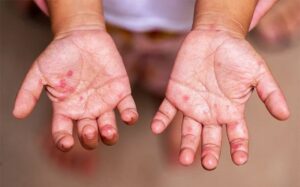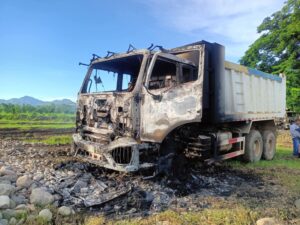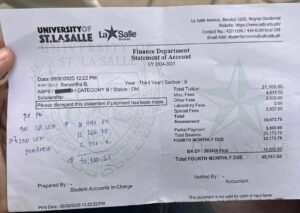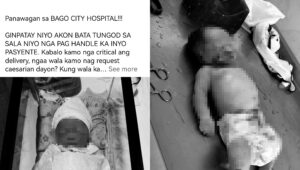FROM THE SURVIVORS SPEAK SERIES OF DOH: LGU OFFICIAL & FAMILY OVERCOME COVID-19, EMPHASIZE ON IMPORTANCE OF MPHS AND BHERTS
A local government official has credited members of the barangay health emergency response team (BHERT) in his area and the local government unit (LGU) for helping him and his family manage their home quarantine experience after all of them were diagnosed with COVID-19.
On the Oct. 25 episode of the Survivors Speak Series, Tagaytay City Councilor Joel Tibayan recounted his ordeal, which started when he learned he was COVID-19 positive in mid-July. He was first informed of this by the city mayor herself after thorough contact tracing in their community was held.
It was found that he had contact, over a lunch meeting, with a fellow public servant who tested positive for COVID-19. He and his family went through the free swab testing provided by the LGU. Unfortunately, all of them turned out positive.
Tibayan and his family opted for home quarantine after they met all conditions that allowed this. The city councilor made sure that his family members and their household helpers, who were not infected, practiced minimum public health standards (MPHS) and infection prevention and control methods. These included wearing masks, washing and sanitizing their hands regularly, and strictly observing physical distancing, even deciding not to eat together during mealtimes.
According to Tibayan, these practices were helpful in preventing their household helpers from getting infected by the virus, even if all of the family members were COVID-19-positive.
Health Undersecretary Maria Rosario Singh-Vergeire took special note of Tibayan’s testimonial, attesting that as long as the minimum public health standards are followed, there is a good chance that transmission can be mitigated even in a household setting.
“Hindi porke kasama sa loob niyo sa loob ng bahay ang isa taong positibo ay mahahawa na kayo, as long as gagawin niyo po ang minimum health standards,” Usec. Singh-Vergeire said.
When the Tibayans’ street was placed under localized lockdown to prevent the clustering of cases, BHERT members supported the neighborhood by managing the delivery of food and supplies on their behalf.
According to Tibayan, the presence of the BHERTs allowed those under home quarantine in their neighborhood to manage their situation better. The BHERTs also ensured that the members of each household were monitored on their condition. If someone in any of the households experienced graver symptoms, it was also the BHERTs who made sure these patients were brought to the hospital or temporary treatment and monitoring facility.
Usec. Singh-Vergeire lauded this practice and said the existence of BHERTs in every local government in the country has been an integral part of the nation’s Universal Healthcare (UHC) law even before the onset of the pandemic.
Particularly during the COVID-19 health crisis, BHERTs have proven critical in localizing primary care and health responses, which has been the objective of UHC since its implementation in the past year.
Usec. Singh-Vergeire added that an important principle of UHC is making sure that the health system is inclusive and accessible to everyone, even to those living in remote and rural areas and at the grassroots level.
“Sa implementasyon ng Universal Health Care law, lahat tayo ay panalo. Sa mas matatag at pangmalawakang delivery ng healthcare services, may kakayahan tayong alalayan at mapanatili ang kalusugan ng bawat Pilipino, lalo na sa panahon ng pandemya,” she said.
Usec. Singh-Vergeire also added that implementing UHC in the local communities makes the healthcare system robust and reliable.
“Ang ating universal healthcare din po ang nagbigay-daan upang ang ating shift sa establishment ng ating mga city-wide and province-wide health systems ay makapagbigay nang mas maasahan na health service delivery capacities,” she said.




















